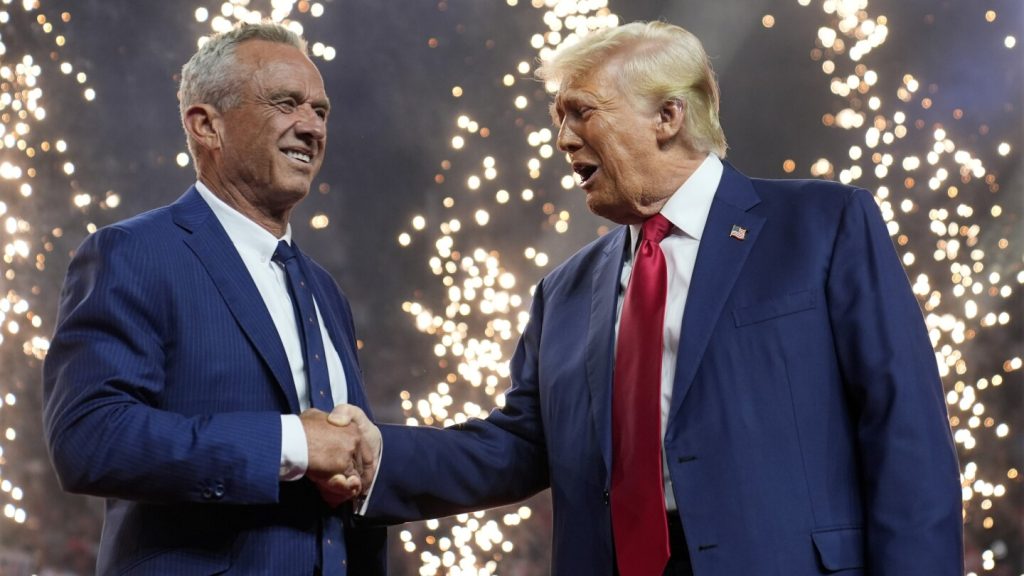Robert F. Kennedy Jr. made a surprising announcement on Friday, suspending his independent campaign for the White House and endorsing Donald Trump. Kennedy stated that his internal polls showed that his presence in the race would hurt Trump and help Democratic nominee Kamala Harris. He cited free speech, the war in Ukraine, and concerns about children as reasons for throwing his support to Trump. Kennedy took steps to withdraw his candidacy in battleground states like Arizona and Pennsylvania but faced challenges in states like Michigan, Nevada, and Wisconsin.
Kennedy revealed that his decision to endorse Trump followed conversations between the two over the past few weeks. He described their alliance as a “unity party” that would allow them to disagree publicly and privately. There were hints that Trump might offer Kennedy a job in his administration if he returns to the White House. Kennedy’s running mate, Nicole Shanahan, even suggested that he could join as the Secretary of the Department of Health and Human Services. The announcement of Kennedy’s endorsement caused confusion and contradictions from his aides and allies, marking the end of a quixotic campaign.
During a rally in Arizona, Kennedy joined Trump onstage as a special guest, receiving enthusiastic applause from the crowd. Trump praised Kennedy for raising critical issues that have been ignored and mentioned plans to establish a new independent presidential commission on assassination attempts. Despite their past disagreements, the two emphasized their shared goal of doing what’s best for the country. Kennedy’s endorsement of Trump was met with mixed reactions from his family members, with five of them issuing a statement calling it a betrayal of their values. Kennedy acknowledged the tension his decision caused within his family but expressed certainty in his choice.
Kennedy’s support for Trump came as a surprise to many, given his family’s history in Democratic politics. He initially entered the 2024 presidential race as a Democrat before switching to an independent candidacy. His support base included anti-establishment voters and vaccine skeptics who followed his anti-vaccine work during the COVID-19 pandemic. Despite facing financial and legal challenges in his campaign, Kennedy’s endorsement of Trump was seen as a reflection of his distrust in the current state of the Democratic Party. Supporters like Casey Westerman shifted their votes to Trump following Kennedy’s endorsement, emphasizing the importance of his judgment in choosing the best candidate for the country.
While recent polls showed Kennedy’s support in the mid-single digits, it remains unclear how much of an impact he would have in the general election. Some evidence suggests that his presence in the race could hurt Trump more than Harris, as Republicans had a more favorable view of Kennedy, leading to potential support for Trump. Overall, Kennedy’s endorsement of Trump added a new dynamic to the 2024 election, highlighting divisions within the Democratic Party and underscoring the unpredictability of the political landscape.


